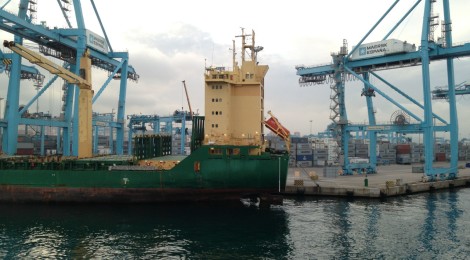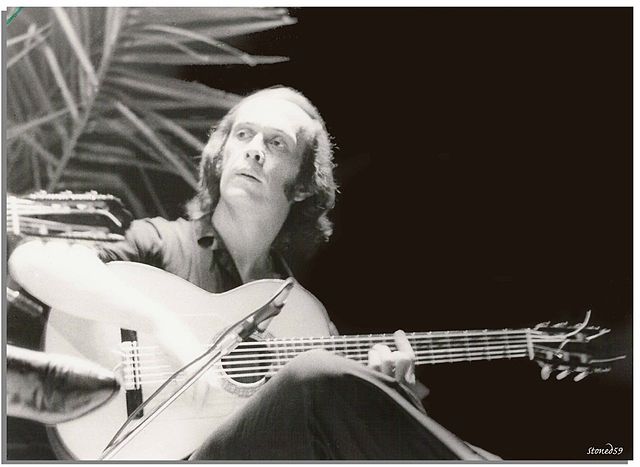
The Homeland of The Master
Our feet touch Spanish soil in Algeciras.
Dusk is upon us when we debark and the dark is nearly complete by the time we’re out of customs.
It’s the hour when Flamencos awaken.
And here, in Algeciras, we are in the presence of its greatest ghost: Paco de Lucia.
He turned from man to ghost this year, so until February 25, 2014, Paco was Flamenco’s greatest talent and statesman.
Yes, it’s easy for writers to puff up the reputations of dead artists. It’s even easier for mediocre guitarists to overstate the talent of professional musicians.
That’s not what’s happening here.
Paco de Lucia was a thousand-year talent who lived in our lifetime. Think Mozart with a guitar who was born into a musical tradition—the Roma tradition, the Gypsy tradition—that was not patroned by royalty competing with courts across the continent to find and hone the best artists. No, historically, Flamenco was limited to family gatherings and tiny clubs and was almost exclusively confined to the south to Spain, to Andalucía. To places like Algeciras.
In Paco’s hands Flamenco was first taken to unimagined heights of virtuosity and then cut free of its traditional mooring and remade.
At the age of twelve a special prize was invented for him at the world’s most significant Flamenco competition because—by the rules and contrary to wishes of the highly vocal crowd then present—he was too young to win the entire competition outright.
He started smashing the traditions of Flamenco in the 1970’s, when he used multi-track recording instead of a live feed to make records. He created a 20th century sound for what, until then, had been a 19th century art form.
In 1976, he turned Flamenco into a world music when he bought an oud—a fretless lute from North Africa—and mastered it, and recorded it on an album—Almoraima—that was unquestionably Flamenco.
I will write no more. What I write is unimportant. Listen. Listen to this live recording of Paco for Spanish television in 1980. One man, one guitar:
http://www.youtube.com/watch?v=QD6NaHforRQ&list=AL94UKMTqg-9Df_SVTQxmUli7vQ08peWZR
At the rough edge of Andalucía, the home of Flamenco,
Chris
Image credit to Wikimedia Commons: https://commons.wikimedia.org/wiki/File:Paco,_el_de_Luc%C3%ADa_(el_maestro).jpg

Thanks to your link we are listening to the amazing guitar playing of Paco de Lucia on Good Friday, on the deck that Chris built. Gracias!
If you enjoyed The Master and want to take a deeper leap into Flamenco, I offer a Seguiriya–a lament for the dead–as performed by Jose Merce and Moraito Chico.
Jose Merce holds nothing back in this performance. It drips with duende:
http://www.youtube.com/watch?v=q1eMW9Ia_xA